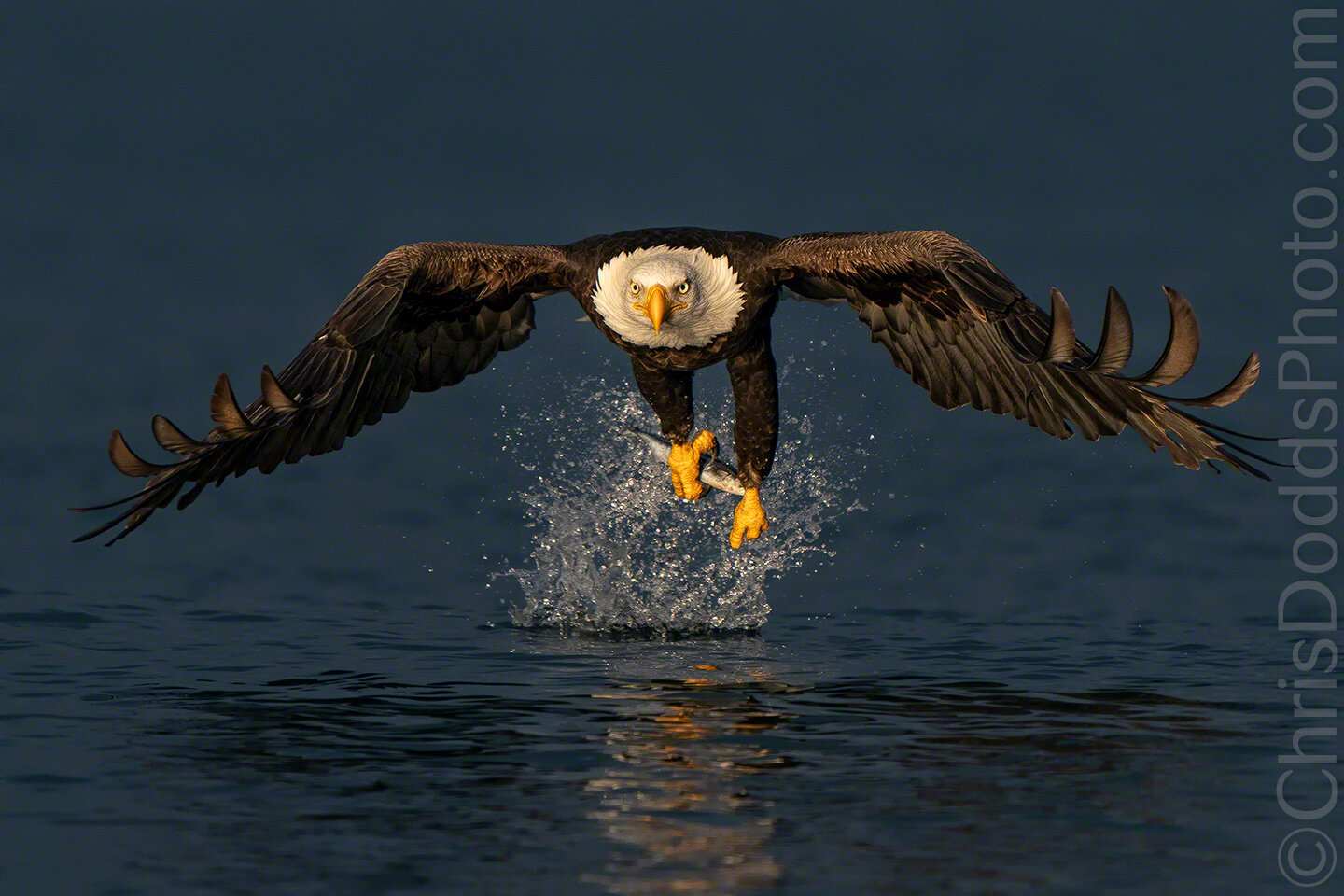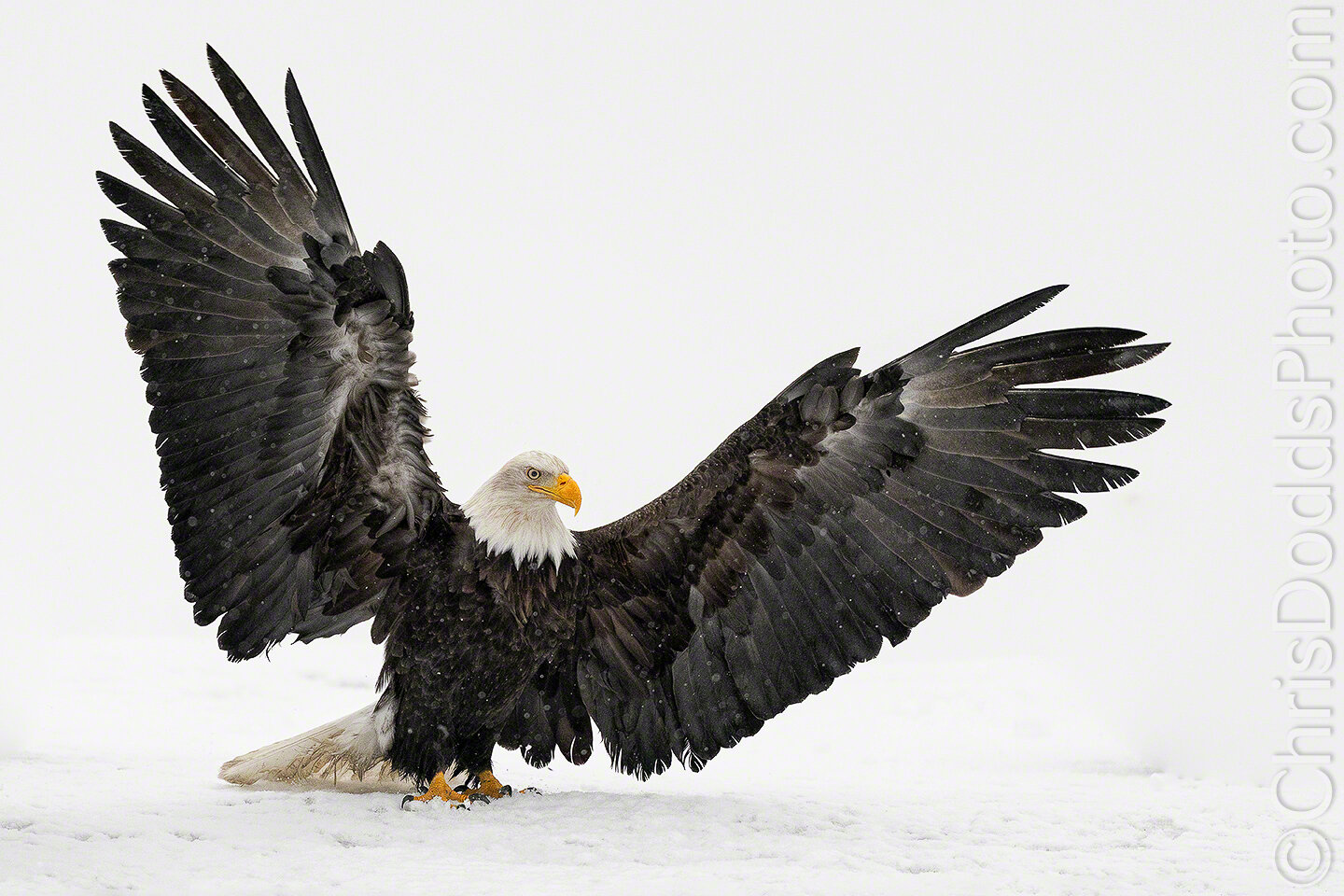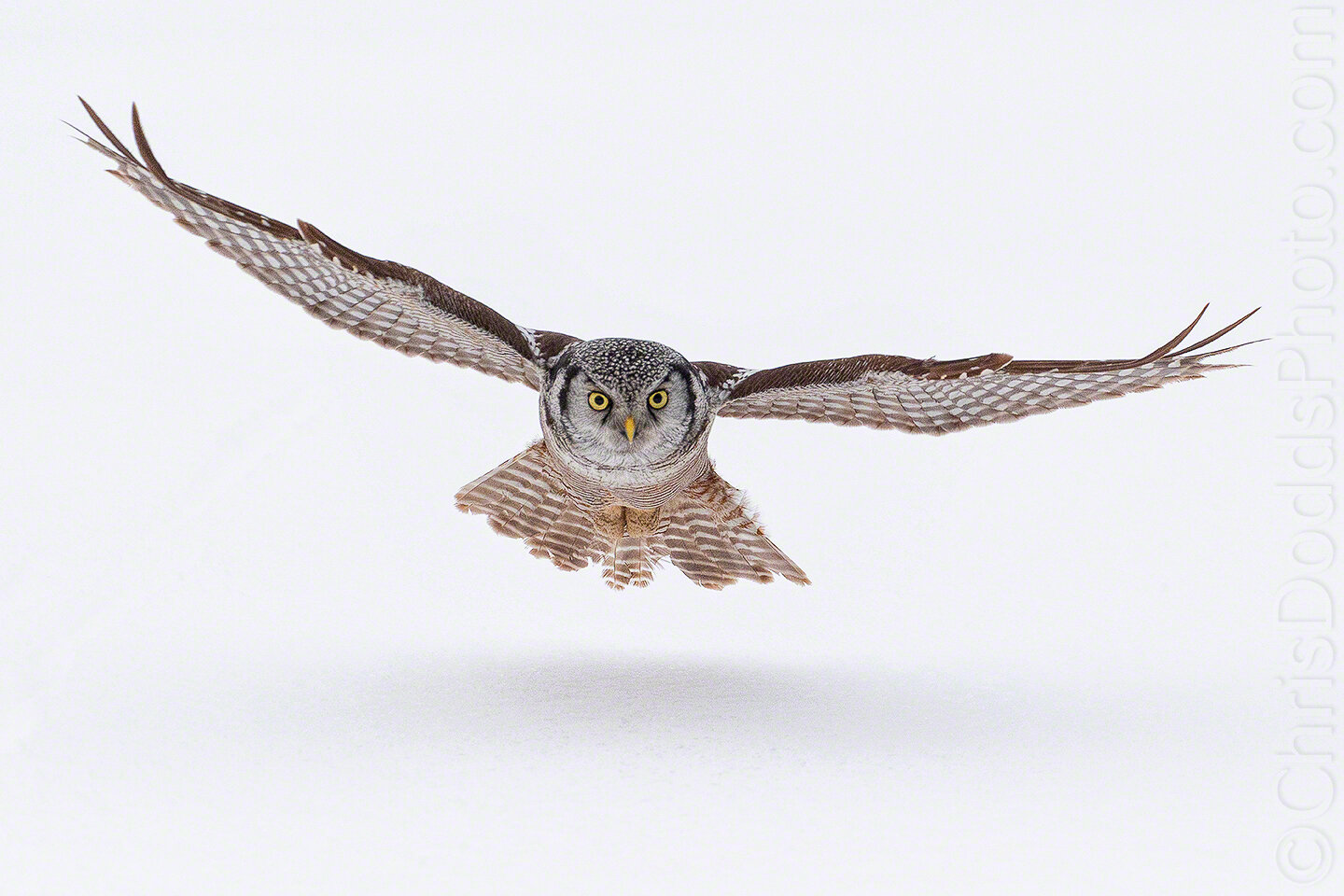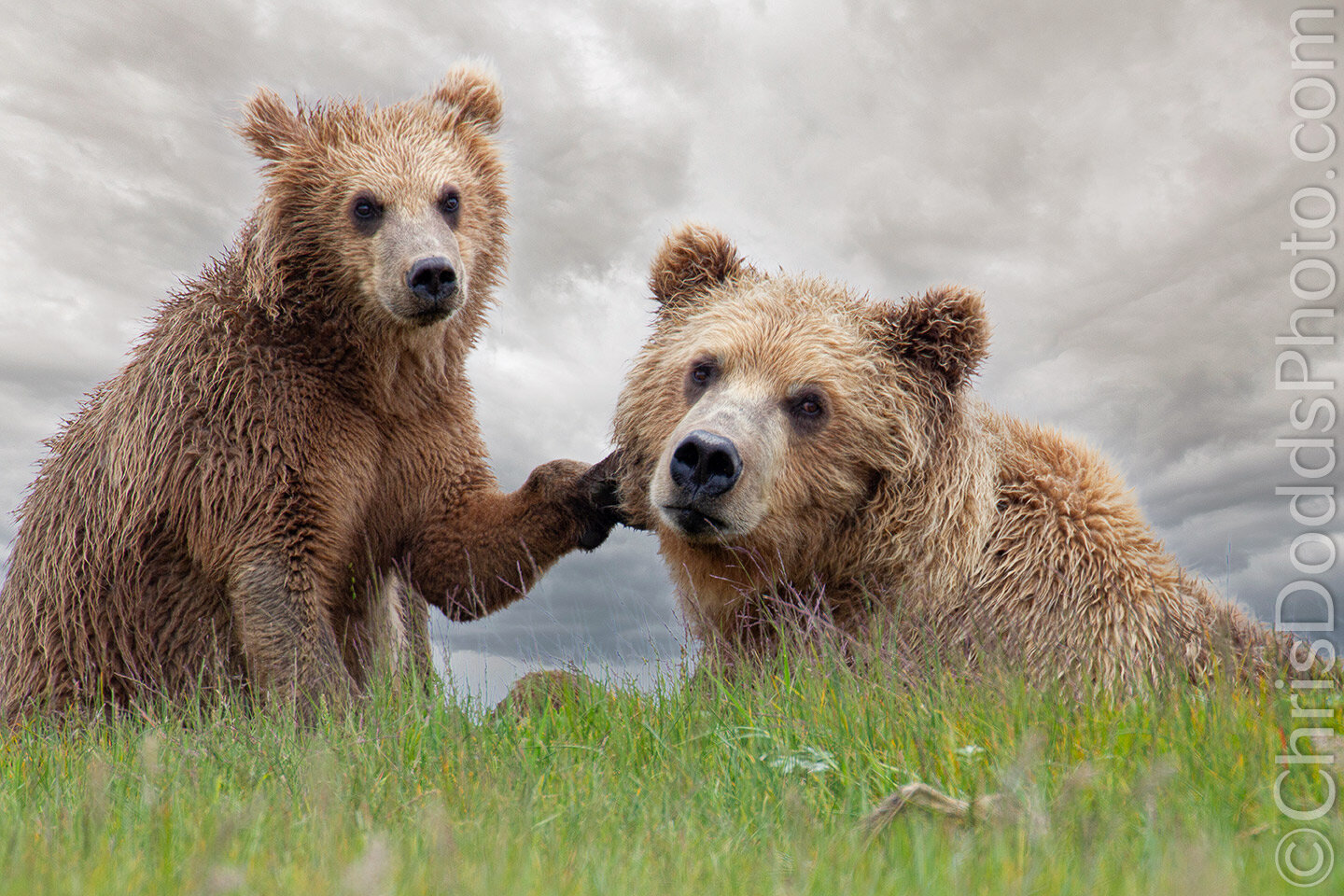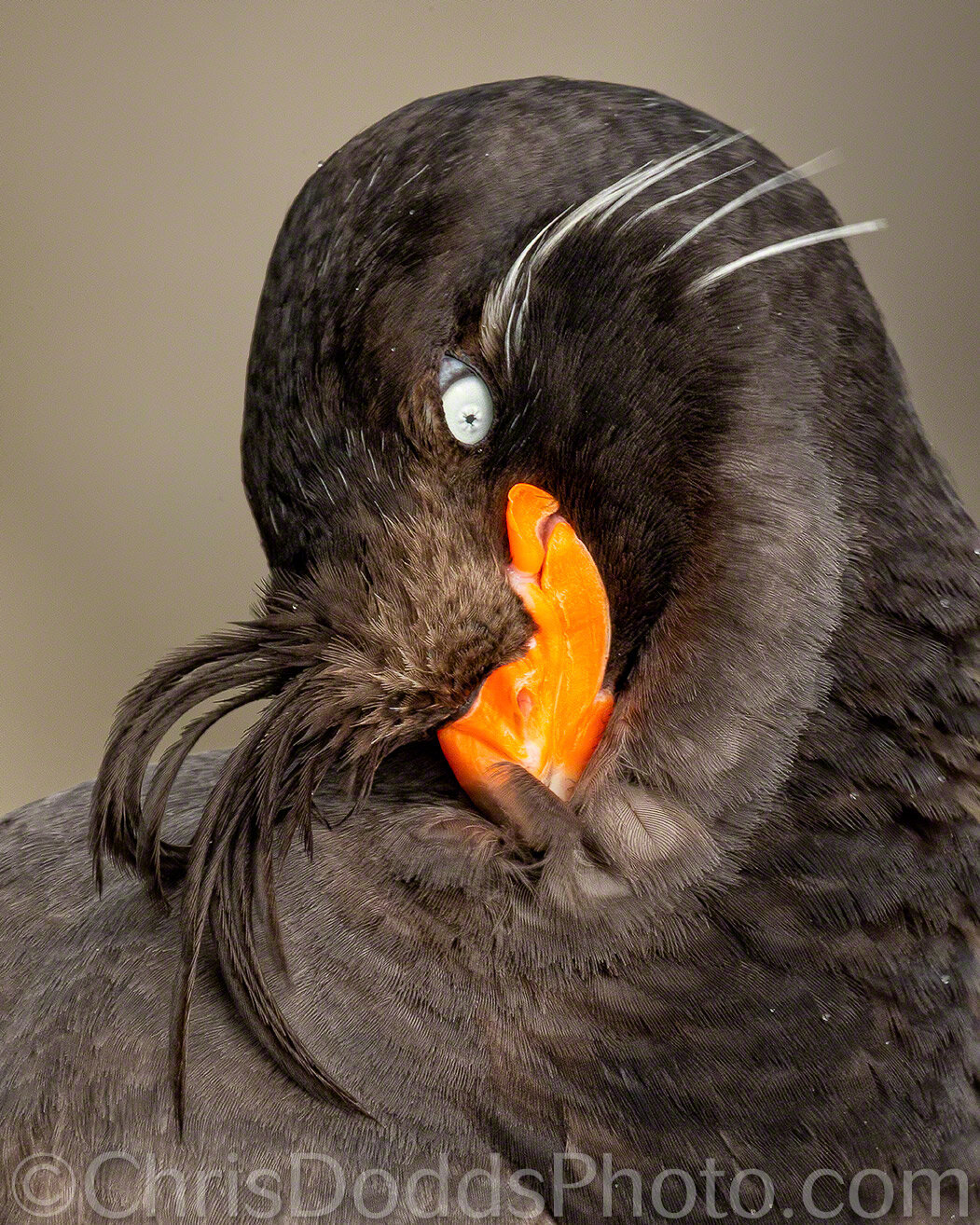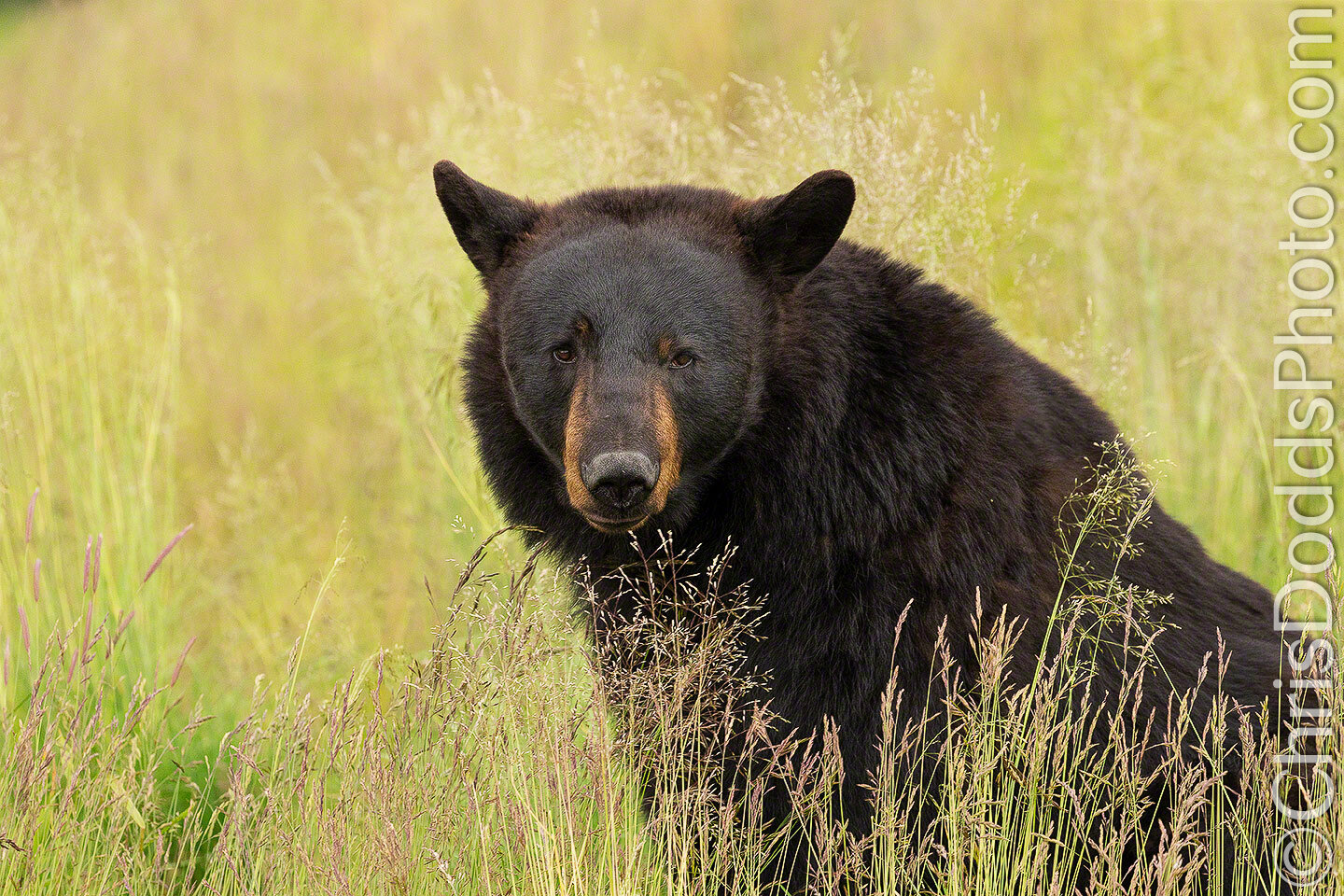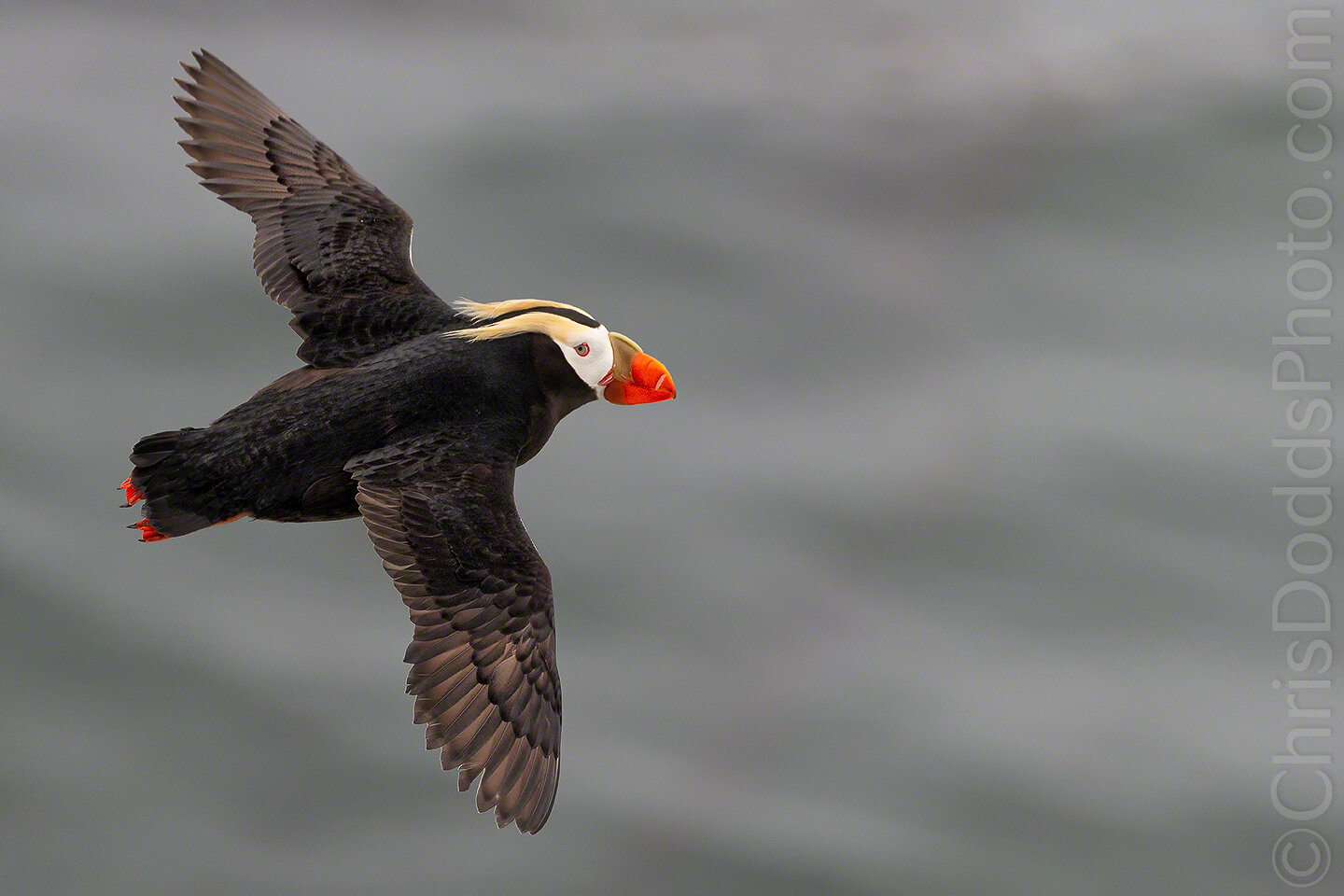American Bald Eagle (Hailiaeetus leucocephalus, Pygarge a tete blanche, BAEA) from my BALD EAGLE WORKSHOP in Kachemak Bay (near Homer), Alaska. Image Copyright ©Christopher Dodds. Sony Alpha a9 II Mirrorless camera & Sony Alpha a9 II Mirrorless camera & Sony FE 200-600mm f/5.6-6.3 G OSS Lens @600mm f/6.3 ISO 2,500 @ 1/5,000s.
Bald Eagle
I recently returned from Chris’s Eagle Workshop in Homer Alaska. Over the years, I have traveled extensively and can say without hesitating that this was the best trip I’ve ever been on. Chris is a very cordial but no nonsense guy. Everything about the trip was organized to the max. I’ve been photographing wildlife for 35 years and thought I had a pretty good idea about how to do it so I wasn’t expecting to learn a whole lot that was new. Wrong! Over the years, other “professionals” had encouraged me to shoot in aperture priority or auto ISO. When Chris told us he was going to teach us to set our camera exposures manually, I thought that sounded like a lot of unnecessary effort. That notion turned out to be false. If you attend this workshop and don’t already shoot in manual mode, your life will be changed. The exposures of the photos I took are spot on and better than any I have ever achieved.
In addition to the new material I learned, the “eagle shooting” was beyond anything one could ever imagine. It was both action packed and challenging. Our group was only five people and Chris bent over backward to make sure that each of us got the best photos of our lives. Even though I had substantial problems with my equipment, I now have more killer eagle photos than I could have ever hoped for. If you want an informative and fun packed trip, I encourage you to sign up for this or any of Chris’s workshops. I have signed up again for next year’s Eagle Workshop, in spite of my truck load of eagle photos, which I believe tells the whole story.”
— Ron Brown Colorado USA
American Bald Eagle fishing in golden light (Hailiaeetus leucocephalus, Pygarge a tete blanche, BAEA) from my BALD EAGLE WORKSHOP in Kachemak Bay (near Homer), Alaska. Image Copyright ©Christopher Dodds. Sony Alpha a9 II Mirrorless camera & Sony Alpha a9 II Mirrorless camera & Sony FE 200-600mm f/5.6-6.3 G OSS Lens @600mm f/6.3 ISO 800 @ 1/5,000s.
Bald Eagle fishing in golden light
“Chris, Thanks for another great photo adventure to Alaska during your Eagles of Alaska photograpic Expedition!!!!!! This is the third trip with you and they keep getting better. Always challenging. Always easy-going. Always taking my photography forward. (Take a look at my site for a few new pictures from Alaska.) Your instruction is the best I've experience in taking these kinds of trips. You always seem to know where to put us in the absolute best place. Top Notch!!!! Can't wait till the next one.....wherever that might be. Thanks again!!!!!!!”
— Jeff Moore Arlington Heights, Illinois, USA
American Bald Eagle (Hailiaeetus leucocephalus, Pygarge a tete blanche, BAEA) from my BALD EAGLE WORKSHOP in Kachemak Bay (near Homer), Alaska. Image Copyright ©Christopher Dodds. Sony Alpha a9 II Mirrorless camera & Sony Alpha a9 II Mirrorless camera & Sony FE 200-600mm f/5.6-6.3 G OSS Lens @200mm f/6.3 ISO 2,500 @ 1/5,000s.
Bald Eagle
The Versatility of the Sony FE 200-600mm f/5.6-6.3 G OSS Lens for bird/wildlife photographers is hard to beat! This image was made at 200mm which is where I reset the lens after each flight sequence so that I wouldn’t clip wings when the next Eagle flew-in or took-off. My LAST POST (Bald Eagle Singing) is a portrait with the same lens at 600mm. The edge-to-edge sharpness is incredible and the value is off the charts.
American Bald Eagle SINGING (Hailiaeetus leucocephalus, Pygarge a tete blanche, BAEA) from my BALD EAGLE WORKSHOP in Kachemak Bay (near Homer), Alaska. Image Copyright ©Christopher Dodds. Sony Alpha a9 II Mirrorless camera & Sony Alpha a9 II Mirrorless camera & Sony FE 200-600mm f/5.6-6.3 G OSS Lens @600mm f/7.1 ISO 1,250 @ 1/5,000s.
Bald Eagle Singing
ki-ki-ki-ki-ki-ki-ker is as close as I can describe the song of the Bald Eagle. Always sends shivers down my spine. and I never tire of it.
The biggest mistake most people make when trying to photograph singing birds is not using a fast enough shutter speed; those mandibles don’t stop moving!
The second biggest mistake is framing the image too tight. Eagles usually move their head while calling; often, but not always, stretching out toward the sky, so be ready to rotate your camera to vertical.
American Bald Eagle STORMFLIGHT (Hailiaeetus leucocephalus, Pygarge a tete blanche, BAEA) from my BALD EAGLE WORKSHOP in Kachemak Bay (near Homer), Alaska. Image Copyright ©Christopher Dodds. Sony Alpha a9 II Mirrorless camera & Sony Alpha a9 II Mirrorless camera & Sony FE 200-600mm f/5.6-6.3 G OSS Lens @298mm f/6.3 ISO 2,500 @ 1/5,000s.
Bald Eagle STORMFLIGHT
An image from an epic day during my last Bald Eagle Workshop in Alaska. I love photographing on overcast days, especially when there is a fresh blanket of snow to reflect the ambient light and illuminate the underside of dark bards like the Eagle here. The big problem is all of the resulting images have bright white backgrounds (if you expose the subject correctly) without much (if any) detail in the sky. To solve the problem, and make the image resemble what we saw with our eyes, I replaced the white sky in the image with a separate image of the sky in Photoshop. The resulting composite image has loads of visual impact.
American Bald Eagle Portrait Wings (Haliaeetus leucocephalus, Pygargue à tête blanche, BAEA) from my BALD EAGLE WORKSHOP in Kachemak Bay (near Homer), Alaska. Image Copyright ©Christopher Dodds. Sony Alpha a9 II Mirrorless camera & Sony 600mm f/4 GM OSS Lens f/4 ISO 3,200 @ 1/3,200s.
Bald Eagle Wings
Here’s a Bald Eagle that seemed to be showing off its wings during an awesome afternoon during my Bald Eagle Workshop in early March. We were starting to hear more about the spread of COVID-19, but never imagined it would stop tourism, travel and have such a devastating impact on so many people and families around the world. This was the last workshop I hosted before the COVID chaos, so I am grateful that I had such amazing clients to share it with.
Did you know? When a bald eagle loses a feather on one wing, it will lose a feather on the other in order to keep its balance.
Great Grey Owl Hop (Strix nebulosa, Chouette Lapone, GGOW) ©Christopher Dodds Sony Alpha a9 Mirrorless Camera & Sony FE 400 f/2.8 GM OSS ISO 2,000, F5.6 @ 1/5,000s Manual Exposure mode. Join me for my winter owl workshops this January/February to learn more CLICK HERE.
Great Gray Owl HOP
KUDOS:
I thoroughly enjoyed my trip with Chris photographing snowy owls.
Chris’s knowledge of the location of the owls each day was key to all the participants getting great opportunities to photograph the owls.
What made the trip a great success for me was Chris’ easy and informative style in communicating camera settings and techniques for best results.
I would highly recommend a trip with Chris.
- Ian Brennan Ireland
Northern Hawk Owl (Surnia ulula, Chouette épervière, NHOW) Quebec, Canada ©Christopher Dodds Sony Alpha a9 II Mirrorless Camera & Sony FE100-400 F4.5-5.6 G Master OSS @ 314mm ISO 3,200, f/9 @ 1/5,000s Manual Exposure mode. Join me for my winter owl workshops January & February to learn more CLICK HERE.
Northern Hawk Owl
Chris Dodds knows how to do a workshop!
“I had the pleasure of attending Chris' Snowy Owl Workshop this past January. To be honest, I did not know much about Chris before the trip. All I knew was the quality of his images on his website and that I wanted Snowy owl pictures. Needless to say, Chris met and exceeded my expectations. He goes over and above to get you in the right place at the right time to capture the best images possible. Having been on numerous workshops around the world with various leaders, I can say Chris worked harder than most..... He also made sure that we were in position to get a variety of images and not just 1000 photos of the same animal behavior. Chris knows his birds and what they are going to do next (as much as humanly possible). He teaches in a way that things make sense. I was getting frustrated with my photography before this trip. I was able to get great shots before the workshop but felt that the percentage of great shots to missed shots needed to be better. Chris explained ways to change a few of my bad habits in a way that no one else ever did. I have tried manual exposure in the past but never got comfortable with it but after a day or two with Chris it clicked in my mind and my images improved and percentage of keepers went up.
If you get a chance to go on a workshop with Chris I would highly recommend it. I know I will again.”
- Rick Susi Orlando, FL, USA
Snowy Owl Dorsal View (Bubo scandiacus, Harfang des neiges, SNOW) from my Winter Snowy Owl Photo Tour in Ontario, Canada.Image Copyright ©Christopher Dodds. Sony Alpha a9 II Mirrorless camera & Sony FE 400 f/2.8 GM OSS. ISO 800, f/2.8 @ 1/5,000s Manual exposure. Full Frame.
Snowy Owl Dorsal View
Q: Hi Chris, I have been told a few times by other photographers that I should throw away any picture that does not include both eyes. Do you follow this rule?
-James Bauer
A: Hi James, Absolutely not! While it is rare for me to keep an image where you can’t see at least one eye, it does happen. The dorsal view of the Snowy Owl here is a good example of when that works. Browse through the images in this blog and you will see many images with just one eye visible to the viewer.
As for what to throw away, once you have deleted any images that are out of focus, or obvious immediate failures, it is up to you what to keep. We all have different tastes and storage is cheap these days. Keep the images that you like - smile!
Eastern Raccoon (Procyon lotor, Raton laveur) Point Pelee National Park of Canada, Leamington, ON, Canada ©Christopher Dodds Sony Alpha a9 Mirrorless Camera & Sony FE 400 f/2.8 GM OSS with Sony FE 2X Teleconverter ISO 10,000, f/5.6 @ 1/2,000s Manual exposure mode. Join me for my Point Pelee Spring Migration workshop in May to learn more CLICK HERE.
Raccoon @ 10,000 ISO
We were the very first to make our way to “The Tip” during spring migration in May 2019 and we disturbed this Raccoon while eating what looked like a Blackburnian Warbler as we rounded the corner in the shuttle. It had finished its snack by the time we got back to it with our cameras, but we felt compelled to photograph it anyway.
The Tip of the peninsula of Point Pelee is the Southernmost point of Canada. Every spring people from around the world visit the point for the opportunity to observe the sudden influx of migratory songbirds. The tip is just south of the 42nd parallel, which is as far south as Barcelona and Rome.
Raccoons are clever and resourceful animals. ... Raccoons eat berries, other fruits, nuts, grains, and vegetables. They also eat insects, eggs, poultry, rats, squirrels, small livestock, birds, fish, snakes, crawfish, worms, frogs, and mollusks. Additionally, raccoons will eat pet food, carrion, and human garbage.
Pine Warbler (Setophaga pinus, Paruline des pins, PIWA) Rockburn, QC, Canada ©Christopher Dodds Sony Alpha a9 Mirrorless Camera & Sony FE 400 f/2.8 GM OSS with Sony FE 2X Teleconverter ISO 500, f/8 @ 1/125s Manual Exposure mode. Join me for my Point Pelee Spring Migration workshop in May to learn more CLICK HERE.
Pine Warbler in a Pine Tree
My Niece and I went to Point Pelee with Chris Dodds Photo and it was a terrific experience. He is very knowledgeable with birds, their species, their calls and is quite witty. If you listen when he tells you to bring certain things on your trip and when he talks about camera usage etc you will gain so much from your time with him! He knows his clientele very well and try’s to cater to them. He has a good analogy on some things and makes you focus on the details. It was an enjoyable week!
- Karen Galati Ontario, Canada
Pine Warbler (Setophaga pinus, Paruline des pins, PIWA) Point Pelee National Park of Canada ©Christopher Dodds Sony Alpha a9 Mirrorless Camera & Sony FE 400 f/2.8 GM OSS with Sony FE 2X Teleconverter ISO 3,200, f/5.6 @ 1/1,600s Manual Exposure mode. Join me for my Point Pelee Spring Migration workshop in May to learn more CLICK HERE.
Pine Warbler
I was impressed on how much Chris cared about making sure everyone was learning, engaged, and getting the most out of the trip. I look forward to my next workshop with Chris!
Michael Lyncheski Gladstone, New Jersey, USA
Horned Puffin in flight (Fratercula corniculata, Macareux cornu, HOPU) Saint Paul Island, AK ©Christopher Dodds Sony Alpha a9 Mirrorless Camera & Sony FE 400 f/2.8 GM OSS with Sony FE 2X Teleconverter. ISO 1,600, f/4 @ 1/5,000s Manual Exposure mode. Join me for my Saint Paul Island, AK workshop this July to learn more CLICK HERE.
Horned Puffin in flight
“My truest feelings for my Saint Paul Island experiences were self-expressed spontaneously and subconsciously when, as our plane taxied down the runway on our return home, I choked up at the thought that our unique week together was over. Special thanks go to you, Chris, for your special help: giving me physical support to deal with the slipperies in the early days before I developed my sea-legs, directing me to good spots for close-up photos, helping me get into and out of them as needed, and especially for your converting me to use the Manual setting for my exposures. The true value of the latter became evident as I scanned my photo results on the computer. I confess I was plenty tired physically at the end of our week, but it was a week that in retrospect I would not have missed.”
— Charles Wyttenback Cape Cod | Massachusetts | USA
Coastal Brown Bears Mother and cub (Ursus arctos, Ours brun) Katmai National Park, Alaska ©Christopher Dodds Sony Alpha a9 Mirrorless Camera & Sony FE 400 f/2.8 GM OSS with Sony FE 2X Teleconverter. ISO 800, f/16 @ 1/320s Manual Exposure mode. Join me for my ultimate Coastal Brown Bear workshop in Alaska. Learn more CLICK HERE.
Coastal Brown Bear Mother with cub
At the end of a very long day hiking around Katmai National Park (Alaska) in the rain knee-deep in mud this mother and cub seemed to look as wet and muddy as I felt - smile. As always in Katmai, we respect the bears from a distance, but they usually tend to gravitate to my group as a trusted shield from the roaming adult males (called boars) and move closer to us. I can see from the timestamps on the images that we spent 44 minutes waiting for both of them to look our way at the same time; we were lucky to have the added bonus of the cub touching mom :)
Since the sky is much brighter than the bears, it was extremely bright and washed-out in the image, so I replaced the background sky to make the scene resemble more closely what my eyes saw.
Crested Auklet Preening (Aethia cristatella, stariques cristatelles, CRAU) Saint Paul Island, AK ©Christopher Dodds Sony Alpha a9 Mirrorless Camera & Sony FE 400 f/2.8 GM OSS with Sony FE 2X Teleconverter ISO 2,500, f/20 @ 1/250s Manual Exposure mode. Join me for my Saint Paul Island, AK workshop this July to learn more CLICK HERE.
Crested Auklet Preening
“As an experienced wildlife & landscape photographer I would highly recommend you attend one of Chris Dodds' workshops - I have attended a number of Chris' workshops and each of them reflect Chris' caring. I just attended the St. Paul, Alaska workshop - typical of Chris' professionalism, and expertise. He only takes you to those unique shooting opportunities when he is convinced that the shoot will provide you the experience you are seeking. In the Saint Paul Island workshop's case he has visited this unique special remote island for over 25 years. The local small population obviously respects Chris and they do all they can to assist the experience. You shoot from a variety of locations, with many types of birds, complimented by wild fox, sea lions etc. Chris has the talent to assist both experienced and novice photographers - he makes sure you get the opportunities you want, and if you need extra help he enjoys jumping in and helping you. If you had to summarize Chris' workshops in a few words - Great well researched locations, tremendous local knowledge, dedicate to your photographic results being all you could possibly want.”
— Wynne Powell British Columbia, Canada
Parakeet Auklet AFTER THE STORM (Aethia psittacula, Starique perroquet, PAAU) Saint Paul Island, AK©Christopher Dodds Sony Alpha a9 Mirrorless Camera & Sony FE 400 f/2.8 GM OSS with Sony FE 2X Teleconverter. ISO 5,000, f/22 @ 1/160s Manual Exposure mode. Join me for my Saint Paul Island, AK workshop in July to learn more CLICK HERE.
Parakeet Auklet After the Storm
Saint Paul Island is, for all intent and purpose, in the middle of the Bering Sea. When there is a storm, it is usually quite a storm with heavy rain and high winds. The birds stay out at sea, or on/in their nests to protect their eggs/babies. It is after the storm when the birds start to arrive back at the cliffs in big numbers. It can be overwhelming, at times, seeing the number of birds swirling around. This is when we fight the urge to photograph the flying birds, and focus our lenses on the perched birds that seem to come out to stretch, or linger on the cliffs to rest. Even though I used a small aperture to try to get some details in the sky, the resulting image has very little detail, so I replaced the sky to add some drama to this image.
Kenai Black Bear (Ursus americanus, Ours noir perniger) Kenai Peninsula, Alaska ©Christopher Dodds Sony Alpha a9 Mirrorless Camera & Sony FE 400 f/2.8 GM OSS ISO 1,600, f/9 @ 1/800s Manual Exposure mode. Join me for a workshop to learn more CLICK HERE.
Black Bear
A Black Bear curiously watches as I maneuver around for a better angle. A much more passive encounter than the last Black bear I saw in Alaska that bluff charged me a couple of times, but that is a story for another day - smile.
Tufted Puffin dorsal view In-Flight against the Bering Sea (Fratercula cirrhata, Macareux huppe, TUPU) Saint Paul Island, AK ©Christopher Dodds Sony Alpha a9 Mirrorless Camera & Sony FE100-400 F4.5-5.6 G Master OSS @ 400mm ISO 2,500, f/5.6 @ 1/5,000s Manual Exposure mode. Join me for my Saint Paul Island, AK workshop this July to learn more CLICK HERE.
Tufted Puffin dorsal view in flight & Top 10 Puffin Facts
Top 10 Puffin Facts:
10. Puffins only possess Technicolor bills—and their matching orange feet—during the spring breeding season. Just before winter sets in, they shed the colorful outer bill, leaving a noticeably smaller and duller-colored beak.
9. There are four species of puffins, three of which are slightly distinguishable from one another. The Atlantic and horned puffins look quite similar, with the exception of a blue-grey triangle at the base of the Atlantic puffin’s beak. During the mating season, straw-like feathers protrude from the crown of the tufted puffin’s head. The fourth species, the rhinoceros auklet, doesn’t look like the other three – it’s ashen colored, with a rhino-like protrusion during the breeding season. But it’s still technically a puffin.
8. The puffins’ genus name, Fratercula, comes from the Latin for “little brother.” The name refers to the sea bird’s black and white plumage, which was said to resemble the robes that monks once wore.
7. A puffin weighs about the same as a can of Coke.
6. Puffins lay just one egg per year—and usually with the same mate. Like some penguins, both parents take turns incubating the egg and caring for the chick.
5. Puffins may chatter up a storm at their breeding colonies, but they remain perfectly silent while at sea.
4. There are currently eight isles around the world named Puffin Island—so named because they all are or once were home to large colonies of puffins.
3. A puffin can fly as fast as 55 mph. Compared with other auks, which tend to stay just a few feet above the sea, puffins usually maintain a cruising altitude of around 30 feet.
2. brilliantly colored beaks of Atlantic Puffins also light-up -- like a glow stick! -- when exposed to ultra-violet (UV) light.
1.Puffins are one of the few birds that have the ability to hold several small fish in their bills at a time. Their raspy tongues and spiny palates allow them to firm grasp 10 to 12 fish during one foraging trip. They thus can bring more food back to their young compared with other seabirds that tend to swallow and regurgitate meals for their chicks.
Least Auklet PORTRAIT (Aethia pusilla, Starique minuscule, LEAU) Saint Paul Island, AK©Christopher Dodds Sony Alpha a9 Mirrorless Camera & Sony FE 400 f/2.8 GM OSSwith Sony FE 2X Teleconverter. ISO 1,250, f/9 @ 1/400s. Manual Exposure mode. Join me for my Saint Paul Island, AK workshop this July to learn more CLICK HERE.
Least Auklet Portrait
Also known as the Knob-billed Auklet, the least auklet (Aethia pusilla) is a seabird and the smallest species of auk. It is the most abundant seabird in North America, and one of the most abundant in the world, with a population of around nine million birds. They are able to locate their nest sites from the previous season, even when covered with snow. They sit where the nest is and take possession of it once the snow has melted.


